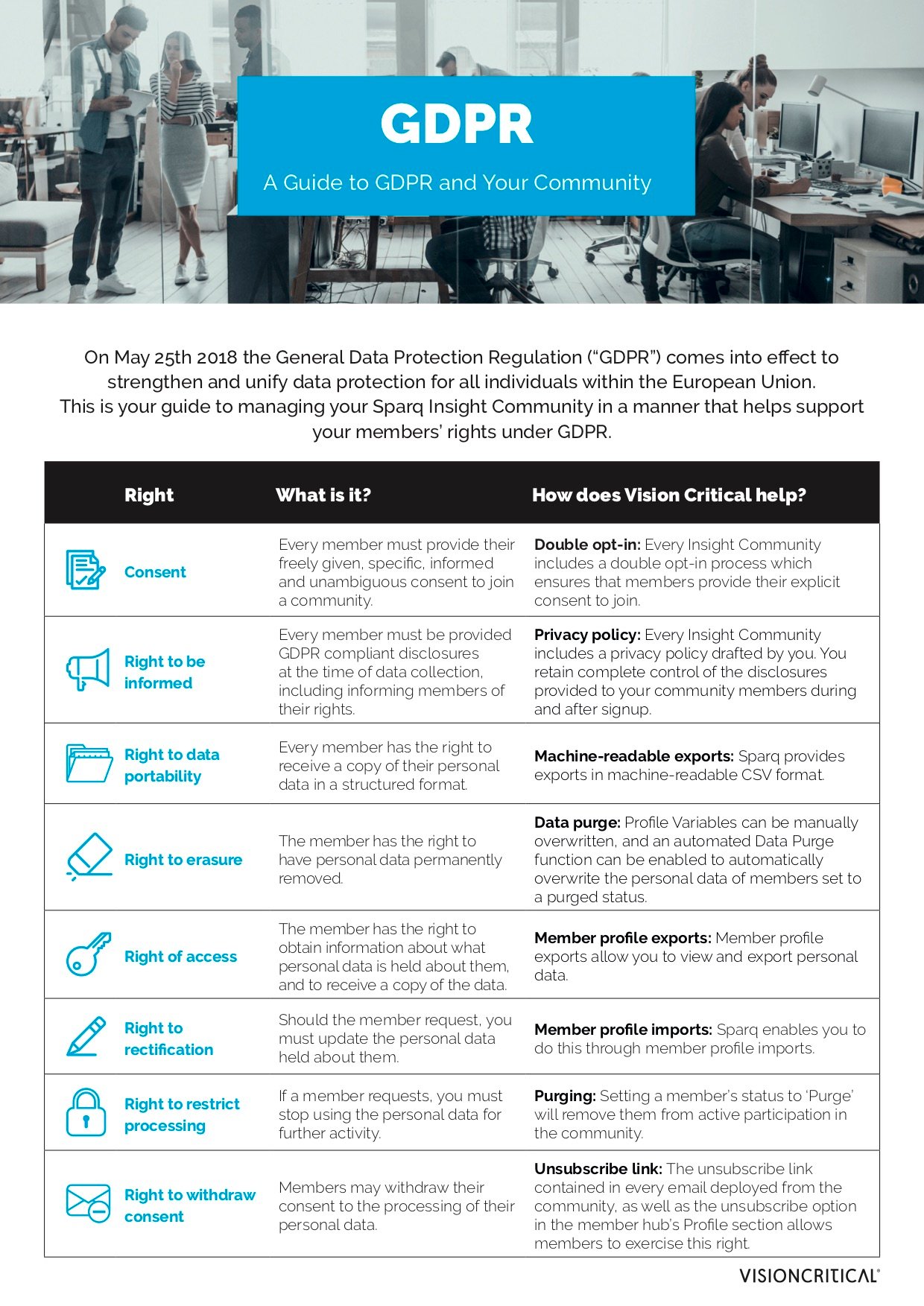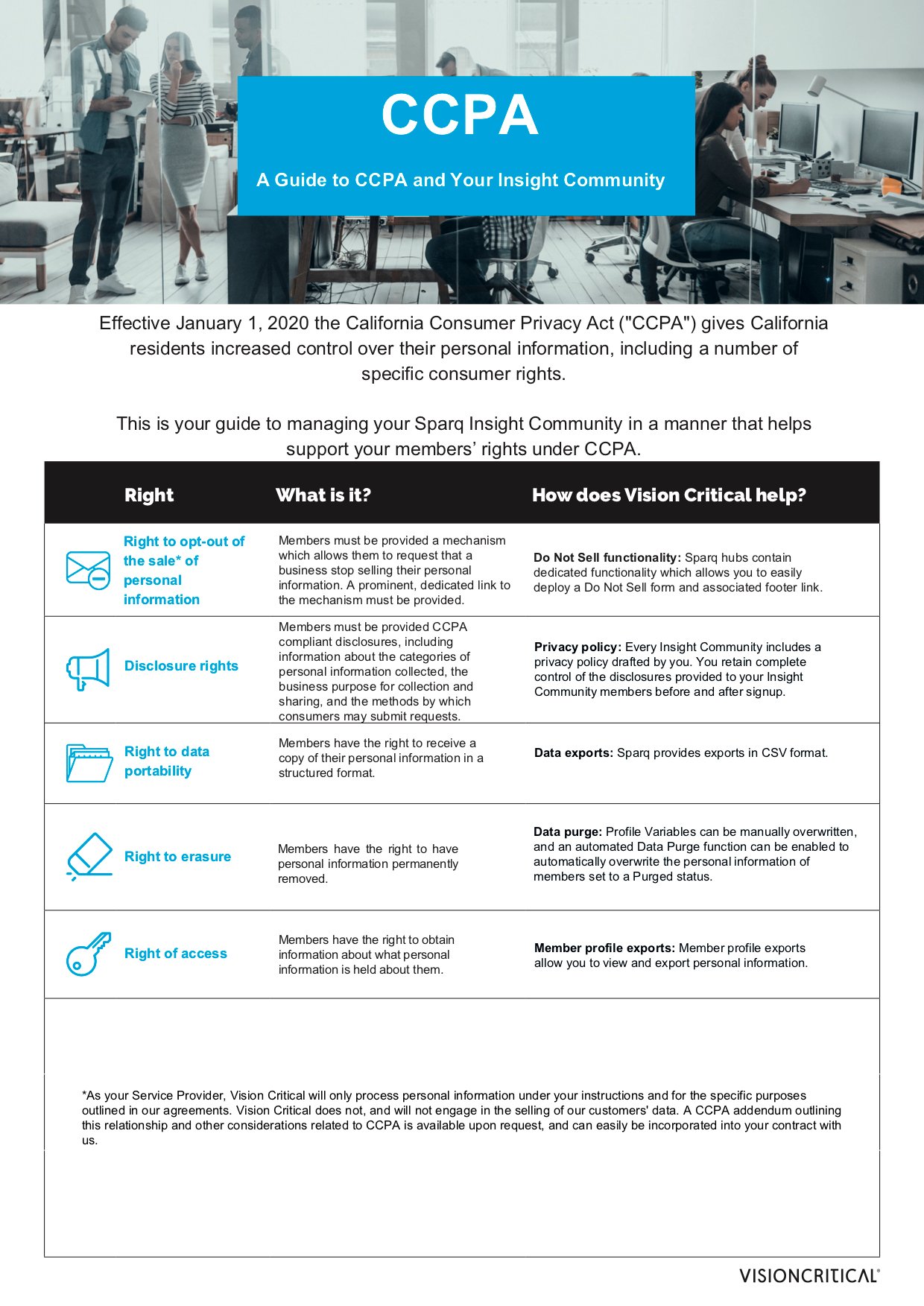Last month the Alida leadership team joined current and prospective clients in San Francisco for Insights Day. I not only got a chance to rub in the fact that my hometown Toronto Raptors won the NBA title over a certain Bay Area basketball team, but also got to discuss how trust and transparency are the new currency of business. In case you missed the event, here’s a brief recap of what marketers should know about privacy and security to help overcome the consumer trust deficit and build a trusted brand.
Marketers Need to Understand Changes in the Business and Scope of Data Collection over the Years That Have Led Us to the New Regulatory Landscape
With the introduction of cookies in the early 1990s as a way to help businesses offer greater personalization on their websites, companies could track users who came to their sites and gather basic information about them. But soon third-party cookie tracking took off, and companies could set cookies on one site they had a relationship with and then gather huge amounts of data regarding a person’s online activities as they moved across the Internet.
Businesses could inexpensively purchase the profiles of millions of people from a data broker, but the humans behind the profiles got lost in the shuffle and details were seen as just data, rather than as people’s sensitive information. When unsettling and surprising stories started to crop up about how companies knew a lot more about people than they expected, consumers’ trust in brands started to erode.
Marketers Need to Understand the Basics of GDPR and CCPA
Increased public awareness and scrutiny regarding data practices helped lead lawmakers in the European Union (EU) to create the General Data Protection Regulation (GDPR) which went into effect in May 2018. California lawmakers passed the California Consumer Privacy Act (CCPA) in June 2018, and it goes into effect January 1, 2020. Over a dozen other U.S. states have also drafted or passed their own data privacy laws. These laws carry large fines for businesses who violate customers’ data privacy rights.
How does Alida Sparq help you comply? We created these infographics to outline the basic rights afforded individuals under GDPR and CCPA. They will help you understand how you can support your customers’ rights under the new regulations when using our products.
One important item to note is that it is increasingly difficult to leverage personal data overall. People can selectively revoke consent and, as of January 1, CCPA allows individuals to opt out of the sale of their data. It will be interesting to see how much of an impact this will have on businesses.
The major lesson is to remember the importance of consent, even when it’s not mandatory. What if companies had proactively informed customers about cookies and asked permission for tracking, letting them know the benefits they would receive such as personalized offers, cheaper products, or free stuff online? Perhaps if transparency and consent had been prioritized earlier, the interplay between businesses and consumers would have been much better than it has been over the last 20 years. Gathering consent is no longer a luxury or good faith effort, it is now a business imperative.
Marketers Need to Know What Questions to Ask Their Privacy and Security Officers
Security, privacy, and compliance have historically been topics marketers would only encounter when reviewing vendor contracts, making sure terms and conditions are covered in a campaign, or when you’ve done something wrong and your compliance department comes knocking. Although normally left to people who sit on another floor in the office, these topics are increasingly of critical relevance to marketers in organizations of any size and in any industry.
It’s now your responsibility to be proactive in helping your business do more than just check a box. It’s not enough to be compliant when dealing with personal data. You need to exceed expectations and you need to be transparent.
Here Are Some Questions to Ask within Your Organization:
- Where is our data stored and who is it shared with?
- Who in our organization is ultimately responsible for customer data?
- Is our privacy policy user-friendly and easily understandable to the average consumer? Is it accurate?
- What is the state of our organization’s data hygiene?
- Regarding CCPA: Does our website homepage require a prominent “Do Not Sell” button to allow consumers to easily opt out of the sale of their data?
Marketers Need to Know How to Utilize Transparency to Become a Trusted Brand
Data privacy regulations are not going away. In addition to state laws, there’s debate over whether the U.S. should have a federal privacy law and what that should look like. But you can build trust with your customers, despite these new challenges. I’ll wrap up with an example of a company who is getting the balance between trust and data collection right.
Many of us trust the most sensitive aspects of our lives to Apple. Our iPhones process our daily transactions, conversations, and messages, as well as track our movements and health data. Apple has realized that because of this, we need to trust they will do the right thing. As a result, Apple has evolved into a leading privacy and security company, and it’s working extremely well.
You can choose whether or not to enable a feature that requires your data, such as Apple Pay. They disclose the financial institutions they will share your transactions with and then give you a choice of whether to use this feature. This transparency, and the ability to consent to the use of your personal data, gives you a sense of trust and security, which Apple has operationalized expertly.
If you can explain the value you provide someone in exchange for their data and you can give them comfort when you collect it, you have the foundation of a trusted relationship. As you work to enact this mentality on your consent data-based journey and prioritize its importance to your customers and constituents, you can differentiate yourself in the marketplace and your business will thrive in this new data-sensitive environment.
Here's the Full Session:
What Do You Think?
Are you familiar with the basics of privacy and security within your organization? Click the social icons to share this post and how you are using consent and transparency in data collection to build with your customers.









